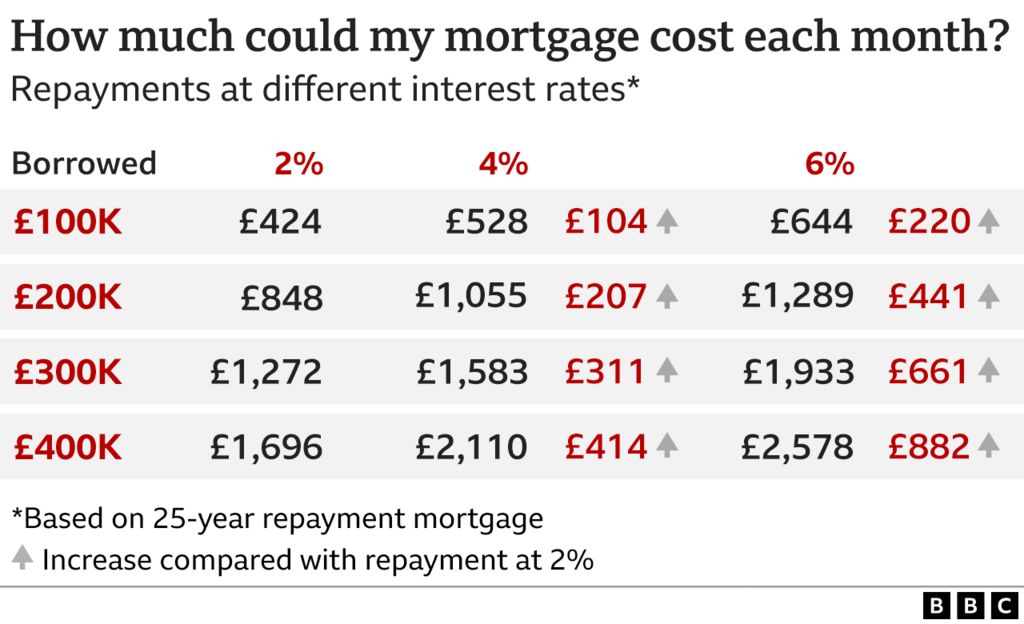There are two main types of loans for mortgages. Conventional and non-conventional loans.
Conventional loans are not backed by the federal government but instead are backed by a private lender, such as a private lender or an agency such as Freddie Mac or Fanny Mae. Conforming loans follow government guidelines, while non-conforming loans do not. If you have good credit and are willing to make a down payment of three percent or more, conventional loans are usually the best option.
what are arm mortgages
Before signing up for an ARM mortgage, you should be aware of its features and drawbacks. First of all, you should know that it varies greatly from one lender to another. The most important factor to consider is whether you can afford the monthly payments. An ARM can change the interest rate on your loan over time.
An ARM offers a lower monthly payment than a fixed rate mortgage, which can be advantageous in some situations. It also gives you the opportunity to save money, which can be beneficial in the event of an interest rate increase. Another plus of an ARM is that you can sell your home before the adjustable rate period ends, which means you can move up to a larger home before the rate increases.
ARMs come in several forms, with the most common one being the 5/1 ARM. A 5/1 ARM has an initial period of five years and then adjusts every year. In addition, most ARMs come with a rate cap structure, which limits the increase in the interest rate from adjustment period to adjustment period.
Another type of ARM is the interest-only ARM. An interest-only ARM requires the borrower to make payments only on interest, thereby lowering the monthly payment. The downside of an interest-only ARM is that you won’t build equity in your home during this period.
jumbo mortgage rates
The process of applying for a jumbo mortgage is complex and not for the faint of heart. Not only must you meet certain criteria, but you should also make sure that you can afford the monthly payments. In addition to the higher monthly payment, a jumbo mortgage also carries higher mortgage insurance and maintenance costs. And because of this, it is important to shop around before you decide on a lender.
In order to qualify for a jumbo mortgage, you will have to submit a higher credit score than a conventional loan. Although this is an advantage, you will need to have a solid financial foundation to ensure that your loan is paid off on time. You should consider the loan balance and your budget and make sure you can afford it. Jumbo mortgage rates are typically higher than the conforming loan rates because they represent a higher risk to the lender.
While jumbo mortgage rates are slightly higher than conventional mortgage rates, you can still find lower rates if you can prove that you have cash reserves and a higher credit score. Jumbo mortgage rates are influenced indirectly by the Federal Reserve, which sets short-term interest rates used by financial institutions and government bonds.
Jumbo mortgage rates fluctuate with market conditions. However, when the market is healthy, jumbo mortgage rates are often comparable to conforming loan rates. Depending on where you live and the current interest rates, jumbo mortgage rates can be even lower. Remember that jumbo loans are often larger than conforming loans and can have higher closing costs.
lowest mortgage rates
The mortgage rates for various types of loans are constantly fluctuating and it is important to keep track of them. Low rates can save you thousands of dollars over the life of your loan. The best way to find the best mortgage rates is to compare rates from several lenders. Moreover, keep in mind that the lowest mortgage rate does not always mean that you will get the same rate as others.
Mortgage rates are based on a number of factors, including the down payment amount and the borrower’s credit score. Generally, a higher credit score means a lower mortgage rate. You can improve your score by making on-time payments and disputing errors on your credit report. Putting down a larger down payment also helps. But even if you cannot afford to pay a large down payment, you can still get a lower mortgage rate.
Although conventional loans are generally the lowest mortgage rates, there are many types of government-backed loans that offer competitive rates. These are the best options for those with less-than-perfect credit. Moreover, some mortgage lenders even offer low-credit mortgages. It is important to note that the mortgage rates on these loans are subject to change every day, and your specific financial profile will determine the rate you can get.
Rates can fluctuate dramatically. Sometimes, they stay the same for weeks, but it is still important to keep a tab on the average rate. There are mortgage rate tables online, including those provided by Forbes Advisor. While the average mortgage rate is about 1.8 percent higher than the 10-year Treasury note, it is important to remember that the actual mortgage rates may vary from these estimates.
15 vs 30 year mortgage
While a 15 year mortgage may have higher monthly payments, it will pay off the loan faster. In addition, a 15 year mortgage will likely have lower interest rates. However, you may want to consider both options before choosing one. A 15 year mortgage calculator can help you determine which one is right for you.
The most important thing to consider when choosing a mortgage is how much you can afford to pay each month. Although a 15-year mortgage is usually a more affordable option over the long term, a 30-year mortgage may be a better option for you if you are concerned about your cash flow in the future.
When it comes to monthly payments, a 15-year mortgage will usually cost several hundred dollars more than a 30-year loan. However, a 15-year loan will typically cost about $75,000 less in the first years than a 30-year loan. A 30-year loan at 4% will trigger monthly payments of $1,053. However, the amount of money you will pay over the 30-year term depends on the down payment you make and your credit score.
Generally speaking, the 30-year mortgage is the most popular option for homeowners in the US. Since the payments will be spread out over two times the length of a 15-year mortgage, the 30-year mortgage is more affordable for the average homeowner. Its lower monthly payments will allow you to buy a bigger home or invest your money in other projects.
what is fha mortgage
An FHA mortgage is a mortgage that has mortgage insurance backed by the US Federal Housing Administration. It is provided by a lender approved by the FHA. The loan is insured to protect lenders against loss. However, it can be expensive. This is why many homeowners prefer using a bank or other lender that is not affiliated with the FHA. In addition to protecting the lender, an FHA mortgage also protects the borrower by guaranteeing the loan.
The conditions for getting an FHA mortgage are less strict than those of conventional mortgages. For example, you can apply with a credit score as low as 500. Most other mortgages require a score of 620 or higher. In addition, the FHA allows debt-to-income ratios of up to 50 percent, whereas traditional mortgages require a maximum of 43 percent. As a result, those with a lot of debt may find an FHA mortgage easier to qualify for.
FHA mortgages are backed by the Federal Housing Administration, which sets guidelines for building homes. They also offer lower interest rates and smaller down payments. These loans are popular among first-time home buyers, those with poor credit, or those with a high debt-to-income ratio. Applicants must have steady employment, a valid Social Security number, and lawful residency in the U.S. They must also put down 3.5 percent of the purchase price or have a gift from a friend or family member. In most cases, FHA mortgages are only offered to people who are buying a home for their primary residence.
When applying for an FHA mortgage, you should compare the loan terms offered by different lenders. Since FHA mortgages are backed by the federal government, the interest rates tend to be competitive. However, they vary depending on the lender and the borrower’s financial situation. The best way to compare interest rates is to shop around for mortgage quotes.
closing costs for a mortgage
Closing costs are fees that lenders charge to complete a transaction. These fees are usually listed on the Loan Estimate, which all lenders send to home buyers. These fees can be higher or lower than average, so it is important to get an accurate estimate from the lender before signing any documents. Although a mortgage calculator can provide a good estimate, it is not a substitute for the actual quote.
Closing costs can add up to thousands of dollars to your down payment. To avoid paying these fees, you can ask the seller to cover them. This practice is common in a seller’s market, but it can be tricky. Ask your mortgage lender about all fees and make sure the closing costs are accurate. Be wary of lenders who pad their fees or charge you twice for the same service.
Closing costs typically range from two to five percent of the loan amount. Larger loans have smaller closing costs. Some lenders can negotiate these fees with borrowers, so it is best to shop around for the best rates and lowest closing costs. The lender may even cover these fees or roll them into the loan amount. This can drastically reduce your out-of-pocket expenses.
Closing costs vary by state and county. In some areas, closing costs can be as high as 10 percent of the loan amount, while in other areas, the average is closer to one percent. The cost of closing depends on several factors, including the type of loan and your credit score.






